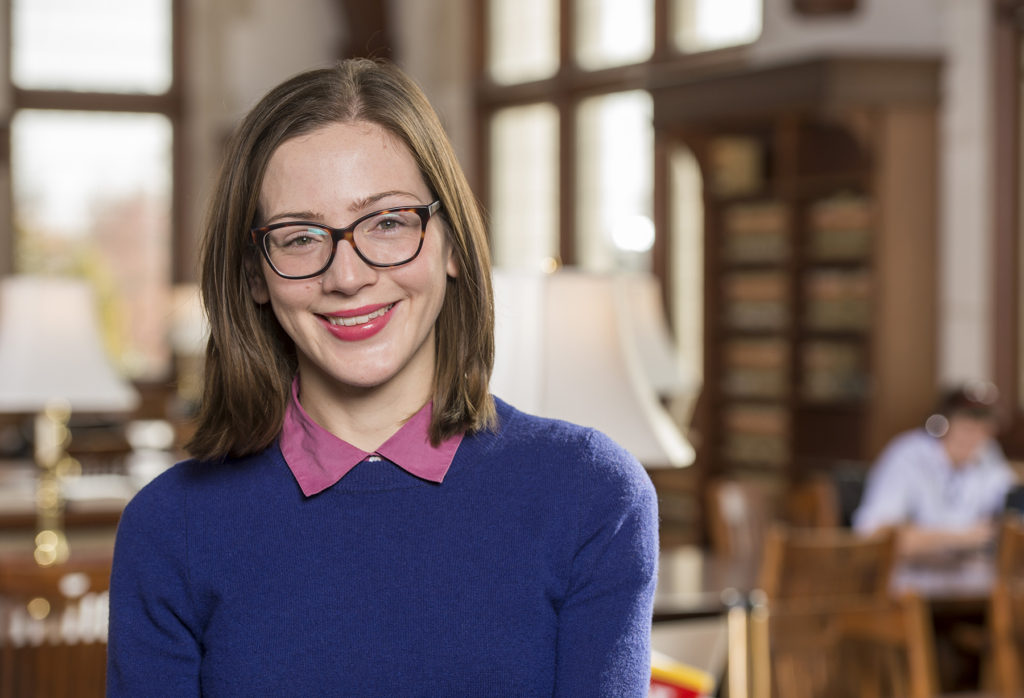
After earning her master of laws degree, Kate Falconer will return to her native Australia to pursue a doctorate in indigenous law. (Photo: Joe Angeles/Washington University)
Being from Australia, Kate Falconer’s interest in indigenous populations in that country began at an early age. As she grew, she began to think about ways in which policies and laws were affecting that population.
“I am interested in indigenous law because I see it as an area of law with a huge amount of potential to make beneficial social change,” said Falconer, who graduates in December from Washington University in St. Louis with a master of laws degree from the School of Law.
After she picks up her degree, she will return to Australia to pursue a doctorate in comparative indigenous law at the Australian National University.
“I hope to use my PhD to show that legal frameworks can be used to benefit first peoples, rather than to systematically disadvantage them,” Falconer said.
During her time at Washington University, she took the course, “American Indian Law,” taught by Steven Gunn, adjunct professor of law and director of the American Indian Law Summer Program. She enjoyed the class, and credits it with helping further her passion for indigenous law.
“I chose to come to the School of Law because of its great reputation — both within the United States and internationally — along with the high quality of its teaching staff in the fields I am interested in. That includes Professor Gunn’s course and others,” said Falconer, who earned a bachelor of arts degree in archaeology and a bachelor of law from University of Queensland in Brisbane, Australia.
This year, she won an honorable mention in a writing contest for the Lawyer’s Committee for Cultural Heritage Preservation for her paper, “Bones of Contention: The Lex Situs Rule and the Illicit Trade in Archaeological Human Remains.” She also worked as a research assistant to Leila Sadat, the James Carr Professor of International Criminal Law and director of the Whitney R. Harris World Law Institute, helping to provide research help on a number of published papers.
“Being at the School of Law has allowed me to work closely with professors who I greatly admire, and who have consistently provided me with helpful feedback and necessary critiques of my research,” she said.
–Neil Schoenherr